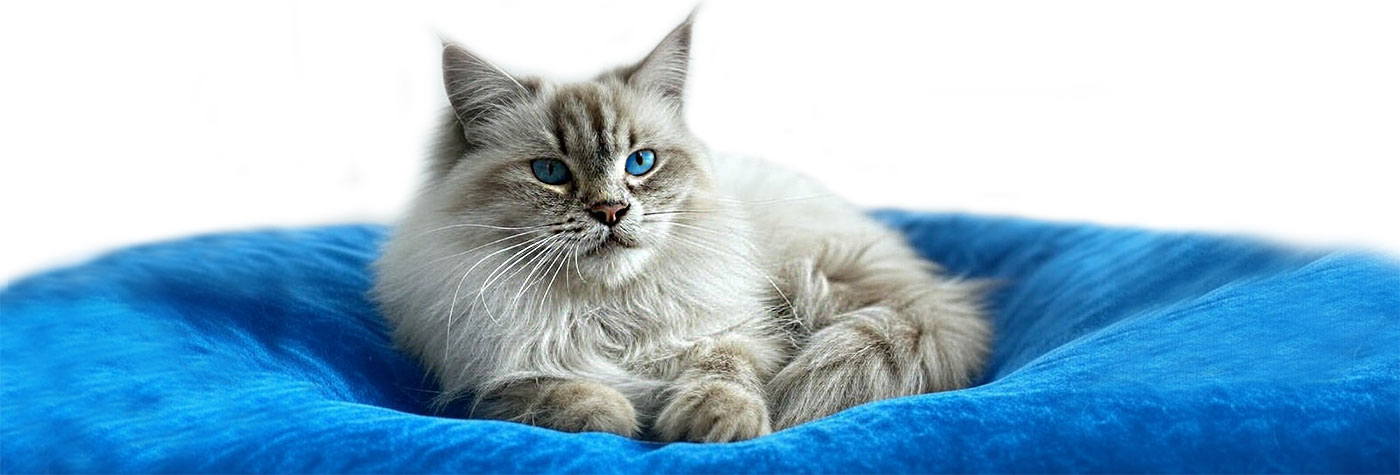Wellness Care and Vaccines for Adult Cats
As partners in your cat's life-long healthcare, Blue Springs Animal Hospital takes a proactive approach to wellness recommendations. Our goal is a long and healthy life for your cat, and we believe strongly that preventative wellness care is the primary way to achieve that objective. Visit our Kitten Wellness page for information on feline recommendations before the first year of life.
Is Blue Springs Animal Hospital & Pet Resort a Feline Friendly Veterinary Clinic?
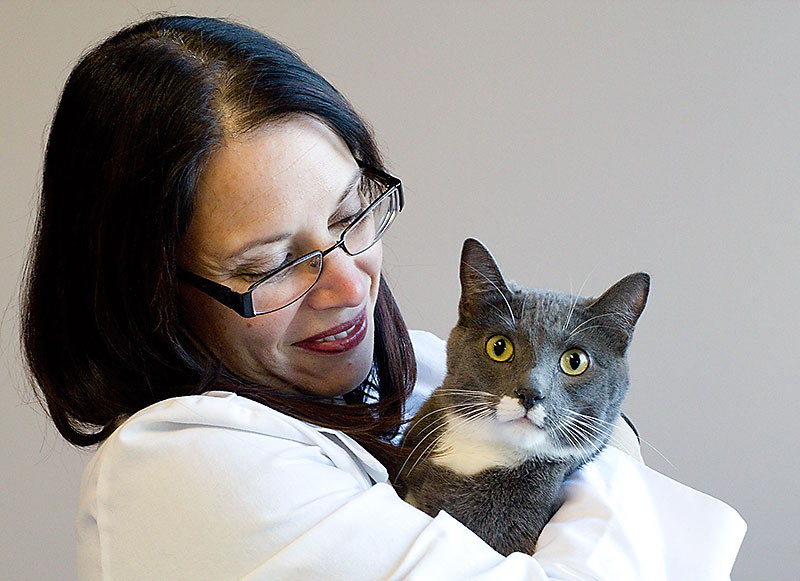
Our doctors and staff love cats and recognize that they have special needs in order to make their visit a more positive experience. We cater to the unique personality of cats in many ways, starting with reducing their stress by providing separate waiting, boarding, and hospitalization areas for our feline friends.
We maintain the highest level of knowledge and expertise in feline medicine and several of our doctors maintain active memberships with the American Association of Feline Practitioners.
Why are physical examinations by a veterinarian important for my cat?
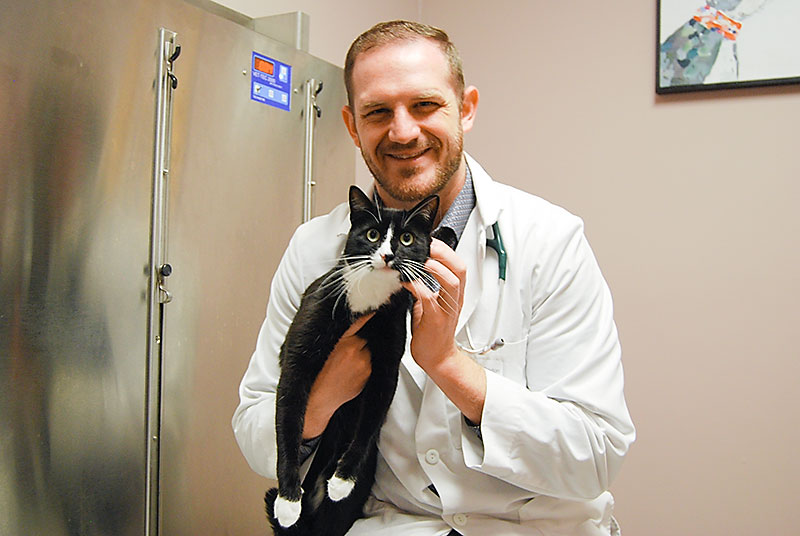
Comprehensive Physical Examinations are the most important part of our wellness program. Veterinarians are trained to detect abnormalities on physical exam that owners might miss, such as heart murmurs, abdominal organ enlargements, ear and eye conditions, and many other problems which cats can not communicate. Early detection and recognition of medical conditions leading to timely and successful treatment is one important key to a long, healthy life for cats.
We recommend exams twice yearly on healthy adult cats because they age so much faster than humans do. By seeing your cat every 6 months, which is approximately 3 cat years, our doctor’s can perform a complete and thorough exam from "nose to toes" to detect problems early when therapy is most effective.
Although we recommend twice yearly exams, if clients prefer to only bring their pets once per year we are happy to accommodate that preference and schedule accordingly.
What vaccinations are needed for adult cats?
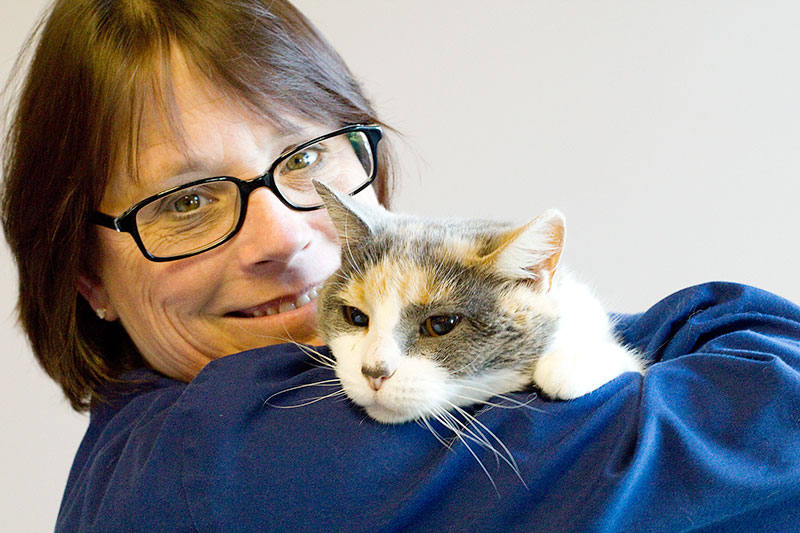
Our veterinarians monitor local risks for contagious diseases and make specific recommendations to protect cats in our area while being mindful to avoid over vaccination. As an American Animal Hospital Association (AAHA) accredited hospital for more than 30 years, we also closely follow the latest research and adhere to highest standards of care.
The vaccines we recommend are tailored to your cat’s needs and risks of exposure. A lot of research and debate within the veterinary profession over the last few years has centered on appropriate wellness care and vaccination protocols for cats. Are we vaccinating cats too much? Not enough?
At Blue Springs Animal Hospital we have followed the research and discussion with the desire to provide the very best care for our patients. Vaccinations are still absolutely critical for cats to protect them against contagious diseases, but vaccination should not be given more frequently than necessary.
Research indicates that some vaccinations provide immunity for more than 1 year, while other vaccinations provide immunity for less than 1 year. A vaccination protocol will be recommended for your cat based on their exposure and according to the newest knowledge regarding vaccinations. When possible we will also split up the vaccinations with the 6 month wellness exams in order to vaccinate for fewer things at the same time and decrease stress on the immune system.
Vaccines which may be recommended include:
- Feline DRCP: Diseases which cause serious illness or death. These are recommended for all kittens and are administered at sequential ages with the final series booster at 4-6 months of age. Boostered again in 1 year and then every 2-3 years.
- Feline Leukemia: Virus which attacks the immune system and may be associated with cancer. Given twice to kittens, repeated in 6 mos, then yearly. Separated from the DRCP to reduce immune stress.
- Rabies: Administered once to kittens and repeated every 1-3 years.
Are Vaccines Needed If My Cat Lives Indoors?
We recommend vaccinating your cat even if you don’t plan on letting them outside. While an indoor cat’s risk of exposure to illness is substantially lower than a cat who goes outdoors, there is no way to eliminate it. It only takes one ripped window screen or a door that stays open just a few seconds too long for an “inside-only” cat to find their way outside. Whether they’re gone for an hour, a day, or an entire week, there’s no telling what diseases they could encounter during their adventure.
In addition to escaping to the great outdoors, indoor cats may also be exposed to diseases if they encounter other animals through a window screen or if other animals are handled by the cat's owners or brought into the home. Cats must also be vaccinated if they will travel or be boarded or groomed in a facility with other pets.
Does My Cat Need Deworming and Parasite Prevention?
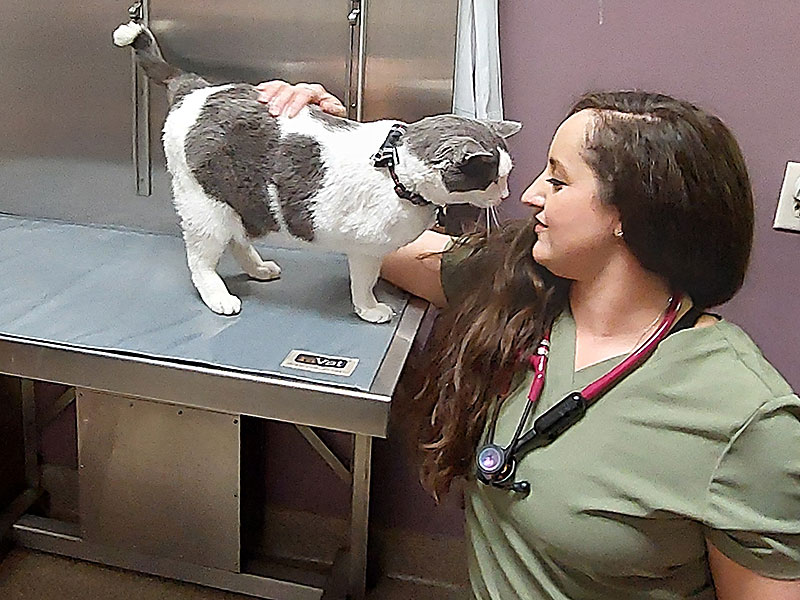
Intestinal Parasites
Internal parasite prevention is an important health care concern for pets and their human family. The Centers For Disease Control (CDC) reports many cases each year of parasitic diseases which are contagious from pets to people. Most of these diseases could have easily been prevented with routine veterinary care. The CDC has produced a brochure for pet parents entitled "What every pet owner should know about roundworms & hookworms". Another excellent resource for additional information about parasites is the Companion Animal Parasite Council.
Almost all kittens have intestinal worms or other parasites and should be tested and dewormed at their wellness visits. After the kitten parasite burden is treated and the cat reaches adulthood, we usually just proactively deworm adult cats once yearly at a wellness visit. This is more convenient and cost effective for clients than collecting stool samples and administering oral dewormers at home to cats who are not thrilled about taking the medication.
Heartworms
In the Kansas City area there is a significant risk for heartworm infections whether a cat lives primarily indoors or outdoors. In studies 30% of cats diagnosed with heartworm disease live exclusively indoors. Heartworms are not contagious from pets to people, but it is a serious disease in both dogs and cats, causing respiratory and heart damage which may be fatal. Often cats show no symptoms of the infection until severe damage has already occurred. Prevention is the only option for cats as there is no medication currently available to treat cats once they have been infected.
The veterinarian will discuss Heartworms and preventative options during the wellness visit. The best plan for cats is to use a heartworm preventative product that is both safe and effective. We recommend giving a preventative once monthly year around for cats in the Kansas City area. Our veterinarians will discuss your cats needs and recommend a specific product for your cat.
For more detailed information on heartworms, visit our Heartworms in Cats webpage, view the video below, and visit the American Heartworm Society website.
Fleas and Ticks
Fleas and ticks can transmit serious diseases and cause significant discomfort for cats. Fleas often carry tapeworms and ticks carry several potentially serious diseases including cytauxzoonosis, hemobartonella, ehrlichiosis, babesiosis, and tularemia. The Centers for Disease Control (CDC) has identified Missouri as a high risk area for tick borne diseases due to multiple species of ticks that are common in this area and capable of spreading diseases.
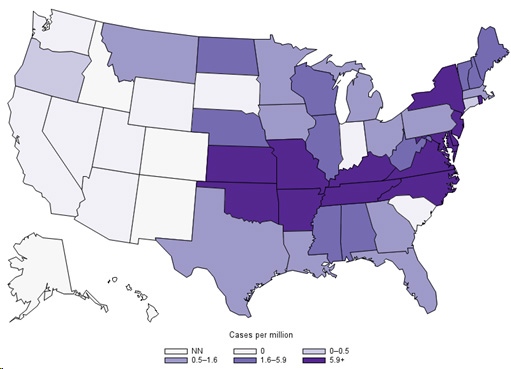
The Feline Health Center at Cornell University Veterinary Hospital has provided a good summary of the feline tick borne diseases.
"Hemobartonellosis is caused by a bacterial parasite that invades a cat’s red blood cells and fosters development of severe, life-threatening anemia, signs of which are pale gums, lethargy, inappetance and rapid or open mouth breathing. Cytauxzoonosis results from infection by a one-celled protozoan parasite that causes severe anemia, fever, lethargy, and breathing difficulties and is usually fatal. Tularemia, a comparatively uncommon but deadly bacterial infection results in fever, lymph node enlargement and abscess formation. In addition to the diseases noted above, other rare tick-borne disorders—such as ehrlichiosis, and babeseosis, —can affect cats and may cause fever, anemia, lethargy, and inappetance or weight loss."
The video below illustrates why it is important to prevent fleas. Just one flea can lay 50 eggs in your home or yard in one day! Multiply that by several fleas over several days, and it becomes clear why prevention is a good idea.
Choosing a safe and effective product to prevent fleas and ticks can be a confusing decision. Many available over the counter flea and tick products are ineffective or even unsafe for cats. Adding to the confusion, some safe and effective products work well in certain circumstances, but not in others. Our veterinarians will help you evaluate your cat’s risks, and recommend a product for your cat.
Should my healthy adult cat have screening blood work?
Wellness Blood Work is like an internal physical examination for your cat. It provides early detection of hidden diseases like diabetes, kidney disease, thyroid disease, and anemia. These are common problems in cats, but cannot be diagnosed based upon symptoms or a physical exam alone.
Early diagnosis and intervention can significantly affect your pet’s response to therapy. We recommend a mini-profile on healthy young adult cats and a complete blood profile and urinalysis on healthy senior cats once yearly. Cats with chronic illness or on medications may require more frequent checks.

What else will my cat's wellness visit at Blue Springs Animal Hospital include?
Client Education is a top priority for our veterinarians and staff. In addition to a physical examination, appropriate vaccinations, and parasite testing and prevention, our veterinarians will discuss nutrition, behavioral issues, breed specific conditions, and/or any other topics of importance to you and your pet during your wellness examinations.
Through prevention, early detection and timely intervention, together we can have a tremendous impact on the quality of life and longevity of your feline best friend.

Customer Reviews of Feline Wellness Care at Blue Springs Animal Hospital
Our pets are always treated quite well. Friendly knowledgeable staff with fair prices. The is an operation that truly loves animals and takes care of our friends.
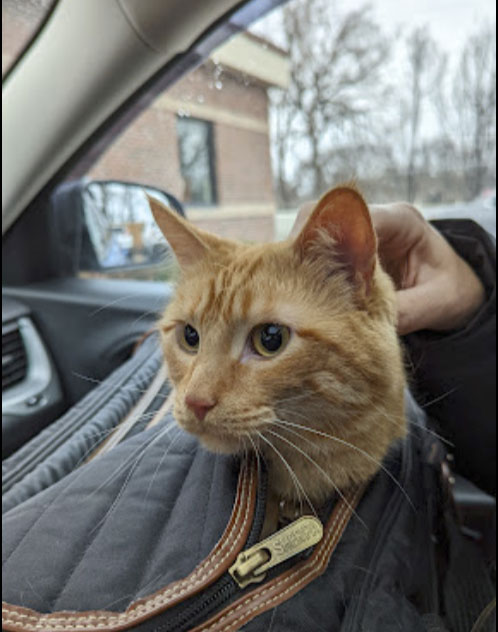
BEST VETERINARY CARE | HIGHLY RECOMMEND I took my cat after hearing amazing reviews from others and personal referrals from friends - all were legit. The staff and veterinarians are pet-focused with a huge understanding for us owners. Everyone goes above and beyond to ensure your pet is comfortable and well-taken to while here, including pet and owner. I was well-informed during each part of my cat’s physical exam and validated for every concern I shared. I have never felt so heard, nor my cat so loved and care for during a vet visit. Thank you to all who provide this exceptional care to our beloved animals and owners at Blue Springs Animal Hospital & Pet Resort. You all are purr-ific!!
Awesome pet care from people who are really into animals. Very nice staff that is welcoming, knowledgeable and caring. My newest cat actually likes it here.
I first took my senior cat here a few years ago as an emergency visit when she began limping. They have been so great! Very knowledgeable, and explain things in a way that I can easily understand. Just generally very kind and caring. I now have both of my cats here for their routine care!

Updating my review after 2 years of taking my pets here. This place is filled with angels. They've always been good to us but recently our very senior cat was on her way out. They did everything to make us and her comfortable with her remaining time. I can't say enough good things about this place.

